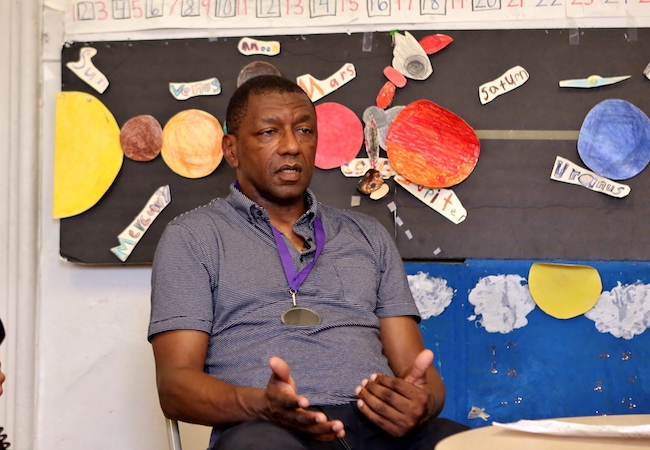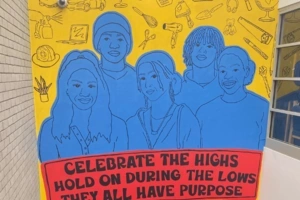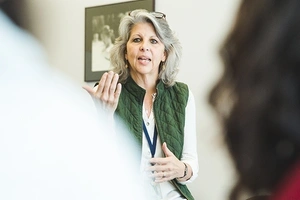“You’re always communicating about race, whether you talk about it or not.”
Since a series of police killings of Black people set off a wave of protests, many people have been asking Howard Stevenson how they, and the country, can improve. Stevenson, a Penn GSE professor in Penn GSE’s Counseling and Mental Health Services Program and a clinical psychologist, has spent his career advocating for racial literacy.
Here are some key takeaways from recent Stevenson interviews:
Start talking early
Stevenson told Vox that parents often don’t want to talk to their young kids about race because they don’t want to burden or frighten them.
Stevenson: “Children at young ages are pretty adept at reading your nonverbal language, and being afraid to talk about race is quite observable. Children, over time, see it over and over and over again. And so they’re learning about what their parents won’t do in many respects more than what to do, if you’re not talking about it.
“So one good recommendation is, if you’re going to have a conversation about race, talk about what’s going on with you, as a parent. What feelings do you have, including the fear of talking about it? And what is that fear coming from?”
Teach children to process their emotions
Bottling up our emotions can have long-reaching impacts. “Research is showing more and more that if we don’t manage racial stress and trauma, it comes out in our health and bodies and sleep,” Stevenson elaborated in the Philadelphia Inquirer. In Vox, he describes a mindfulness method of processing racial moments called calculate, locate, communicate, breathe, and exhale.
This method can help children evaluate their feelings after a racial experience, whether they experienced, observed, or perpetrated racism. And when a child understands how to process their experience, it can help them cope with microaggressions going forward, impacting far more than a singular moment.
Teachers should be prepared, too
Racial moments can occur anywhere, including at school. Students can be hurt by teachers who stand by and do nothing when they face racism, Stevenson told NBC News. Black students need to know that their teachers will stand up for them. ”Teachers can be incredibly powerful in teaching young people to engage in these conversations rather than avoid them,” he adds in USA Today. While white teachers are less likely to address racism in the classroom, having those conversations ultimately leads to kids who are better prepared to navigate situations around race.
The time to talk is now
While protests have largely fallen out of the news cycle, now is the time to have these conversations with children. “I don’t know if there’s ever been a time when these lessons on racism and discrimination have been so stark, in the last 20 years, as we’ve seen in the last four. So the lessons should be easier to pull off,” Stevenson shared in Vox.



